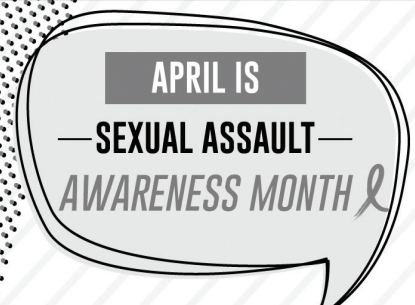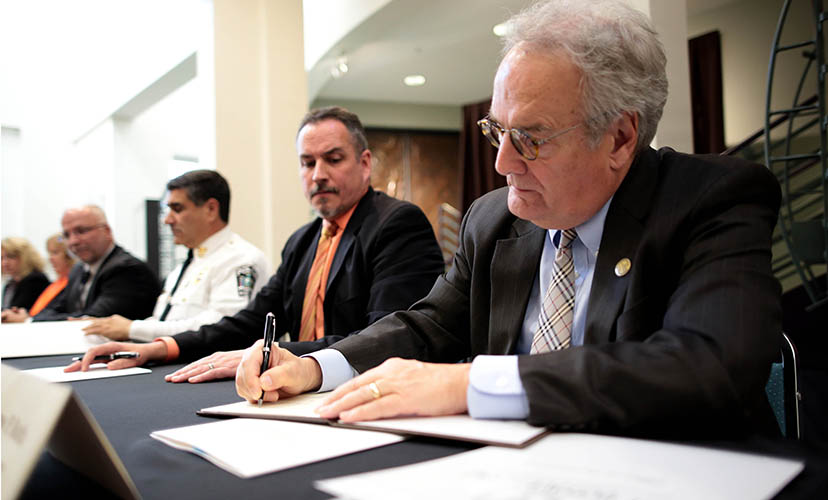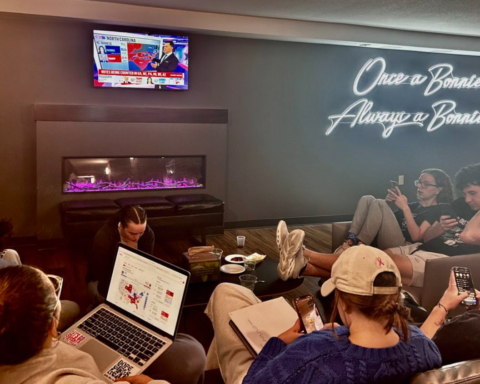By Kathy Williams, Features Editor
Sexual assault, harassment and abuse can happen to anyone at any given location whether on campus, in public or online. To raise awareness and expand the conversation surrounding this misconduct, April is Sexual Assault Awareness Month (SAAM).
People advocating for prevention and awareness for sexual assault has been prevalent in the United States since the 1940s and 50s movement for equality. Although at the forefront was the fight for African Americans to be treated with equal dignity and respect as their white peers, some activists, especially Black women and women of color, raised concern for the domestic violence that was being swept under the radar.
However, the 1970s pioneered the conversation surrounding these sensitive topics.
According to the National Sexual Violence Resource Center (NSVRC), 1971 marked the year the first rape crisis center was founded. As more conversations were had and more survivors found their voice, the fight for women’s rights stood hand in hand with discussions on sex and sexual behavior.
Other powerful events occurred to push the ongoing fight for sexual assault awareness and prevention.
Protests that evolved into establishing the Take Back the Night Foundation, an organization with a mission of ending and preventing sexual violence, in the United States sparked politicians and higher courts to create protective measures for women. The Violence Against Women Act (VAWA) of 1993 reignited voices by showing women and other survivors that legislative action can, and would, happen.
SAAM was first nationally recognized in April of 2001, according to NSVRC. Prior to its recognition, advocates held events in April and sometimes held a “Sexual Assault Awareness Week.”
Sexual violence occurs in all communities. The survivor may know the victim or it could be a complete stranger. The NSVRC explains sexual violence as being sexual assault, rape, incest, unwanted sexual contact and touching, harassment, exploitation, trafficking, exposing one’s gentials without consent, public masturbation, watching someone engage in private acts without their consent or knowledge and the non-consentual sharing of images.
Sexual assault is not a hush-hush subject. It is affecting mass populations in the United States.
According to RAINN, a person in the United States is sexually assaulted every 73 seconds which amounts to about 433,648 annual survivors from ages 12 years or older. Further, one in every six American women has been a survivor of an attempted or completed rape in her lifetime.
Young women are especially at risk.
RAINN states that women between the ages of 16 and 19 are four times more likely to be survivors of rape, attempted rape or sexual assault compared to the general population. When discussing strictly college campuses, a large demographic of people in the United States, women between the ages of 18 and 24 who are part of a college campus community are three times more likely to experience sexual violence compared to the general population of women.
Women are not the only survivors. Men, boys and those who identify as transgender are also at risk. About one in every 33 men in the United States have experienced an attempted or completed rape, and one out of every 10 rape victims are male according to RAINN. From a college campus perspective, RAINN reports that 21% of transgender, genderqueer and nonconforming individuals who are also college students have been sexually assaulted.
Although the statistics are grim, there is hope.
Today, social movements such as the #MeToo movement have provided a safe space for survivors to have conversations on the topic of sexual assault, share their stories, give insight on how sexual violence has impacted their lives and keep advocating for the unheard voices. As more survivors come forward, more justice is being brought to the table.
St. Bonaventure University follows Title IX guidelines as well as gender-based discrimination and sexual misconduct policies and procedures that can be found on sbu.edu. When in danger or just not knowing where to turn to, campus security is available 24 hours a day, 365 days a year.
There are also clubs on campus to provide safe spaces and further advocacy against sexual violence such as SBU for Equality. This club raises awareness about sexual violence, sexism and other gender-based issues.
williakp18@bonaventure.edu









